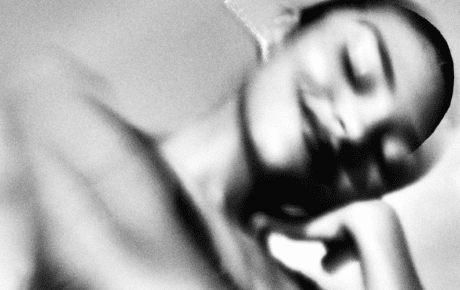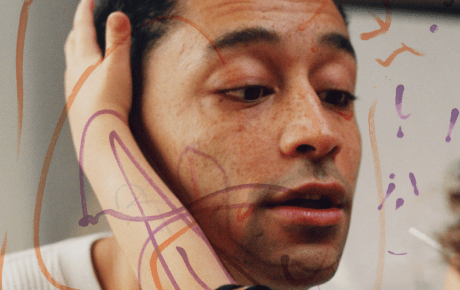My Boy is an album on the precipice of pop magic. Although Marlon Williams has made a name for himself in recent years as one of the most unique names in country music, his latest release rebrands him in between genres with a bursting new stadium sound, creating something incredible in the balancing act between explosive big-band pop and stripped-down, earnest folk.
The past few years have been tumultuous for the Lyttleton artist. He landed acting roles in A Star Is Born and the Netflix original series Sweet Tooth, as well as a support slot on the European Solar Power tour with Kiwi icon Lorde. Williams has defined himself as a local musical legend, with the teeth to sink into international ground too. So it’s this level of success in folk and country that makes the sonic experimentation on My Boy such an exciting shift. And it most certainly pays off.
Thematically, My Boy is a musical war between Williams’ struggles with social rules of masculinity, and the urge to be honest and admit his feelings. The titular track celebrates ideas of brotherhood and paternity, exploring the shared connections between men. But more piercing moments delve into the difficulties of what that patriarchy actually becomes. “Don’t you dare speak to your father that way”, he warns on ‘My Heart The Wormhole’, “I’m still a boy, and you’re still a king”.
Although the album frequently indulges in the thick acoustic guitars and accented sounds of Williams’ country history, every element of the songwriting is undeniably pop. Whistles and coos on opening track ‘My Boy’ are reminiscent of the “millennial whoop”, an infamous 2010s songwriting rule for crafting a surefire hit, whilst the occasional synthesiser on songs like ‘Easy Does It’ and ‘River Rival’ bring glittery 80s elements to the otherwise folksy sound. This distinctive detail in each song’s arrangement sets each song apart, turning well-written original songs into bombastic, fantastic studio works.
‘Princes Walk’ is more obscure, apparently inspired by a watercolour painting Williams’ mother created. Slow and moody, with thick basslines and soft guitars, it’s one of the only songs on My Boy that opts to create a sense of atmosphere over a catchy melody. The result is deeply imaginative and ambient. It’s followed by the contrastingly upbeat ‘Don’t Go Back’, a dark, grooving track devoted to Williams’ disconnect from the party scene. Alongside its sticky chorus, this song’s closing percussive section adds an extra layer of creativity that elevates it to an album standout.
The record’s most satirical moment, ‘Soft Boys Make The Grade’, turns its eye to internet culture and male manipulation. Mocking astrology signs, sliding into DMs and men with a sense of faux sensitivity, Williams plays the part of an online dream boy whose depth of emotion fails to reach any understanding for the feelings of those around him. “Turn on me baby, I’m gonna turn on you,” he croons. It’s amusingly on the nose, surrounded by woozy guitars, mysterious backing vocals, and a heavy piano that makes every line strike in just the same way any questionable text from a self-proclaimed ‘soft boy’ would.
‘Thinking of Nina’ follows with a torn exploration of the male gaze. Williams dances between imagining the titular Nina as his ethereal muse, whilst equally wishing he could “give her freedom” from the curse of playing his manic pixie dream girl. Upbeat yet distraught, direct yet opaque, it’s a song riddled with juxtapositions. Another highlight, ‘Morning Crystals’, is a manic, trippy summer tune. Williams pays tribute to the clear Beatles influence, declaring he’ll “twist and shout” to the music. But like much of the record, there’s a dark underlying tone to the lyrics, as the narrator’s implied drug use only allows him to dance around for so long. The song’s second verse remains deceptively upbeat as Williams admits he needs help, and it will “soon be too late” to recover from his choices.
SEE ALSO: The Magic of Marlon Williams
Whilst the production on this album is beautifully clear and fulfilling, it’s apparent across the board that Williams’ hauntingly expressive voice is the star of the show. Whilst he is undoubtedly a fantastic songwriter, having taken out Aotearoa’s prestigious APRA Silver Scroll back in 2018, it’s the raw emotion he delivers in each performance that gives the record its power. The album’s heart wrenching finale ‘Promises’ is built upon simple lyrics which gain intense force from Williams’ absolute vulnerability as he repeats them. It is as if he is casting a charm for love upon the song’s subject, and in the process, likely reducing the listener to tears.
My Boy will have you spinning and dancing in one moment, then crying in the next, as each listen deepens understanding of Williams’ exact intentions. Whilst on the surface, the album’s sound is by far the most bright and cheery in his discography, in true Marlon Williams fashion, the lyrical content constantly gives you more to think about. “It’s nobody’s fault I was born this way,” he says mournfully near the album’s close on ‘Trips’. It’s a loaded sentence. Marlon Williams makes music that is plain as day, until it’s not, and so My Boy is the gift that simply keeps on giving.












